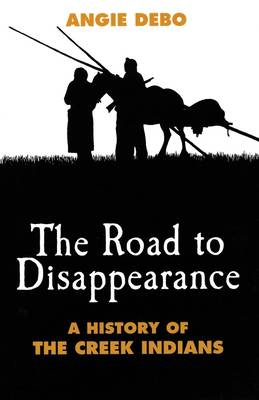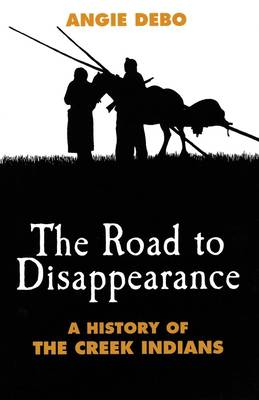
- Afhalen na 1 uur in een winkel met voorraad
- In januari gratis thuislevering in België
- Ruim aanbod met 7 miljoen producten
- Afhalen na 1 uur in een winkel met voorraad
- In januari gratis thuislevering in België
- Ruim aanbod met 7 miljoen producten
Omschrijving
Two hundred years ago, when the activities of the white man in North America were dominated by clashing imperial ambitions and colonial rivalry, the great Creek Confederacy rested in savage contentment under the reign of native law. No one in their whole world could do the Creeks harm, and they welcomed the slight white man who came with gifts and promises to enjoy the hospitality of their invincible towns.
Their reputation as warriors and diplomats, during the eighteenth and early nineteenth centuries, extended to the most distant reaches of the Indian country. Secure in their careless strength, friendly toward the white man until his encroachment made them resentful and desperate, they learned that they had no guile to match broken promises, and no disciplined courage to provide unity against white ruthlessness. Broken, dissembled, and their ranks depleted by the Creek and Seminole wars, they were subjected to that shameful and tragic removal which forced all the Five Civilized Tribes to a new home in the untried wilderness west of the Mississippi.
There, when they found the land good, they revitalized their shattered tribal institutions and rebuilt them upon the pattern of the American constitutional republic. But contentment again was short-lived as they were encircled by the encroaching white man with his hunger for land, his herds of cattle, and his desire for lumber, minerals, and railway concessions. They were faced, moreover, with internal political strife, and split by the sectionalism of the Civil War. Yet, they still survived in native steadfastness-a trait which is characteristic of the Creek-until the final denouement produced by the Dawes Act.
In The Road to Disappearance, Miss Debo tells for the first time the full Creek story from its vague anthropological beginnings to the loss by the tribe of independent political identity, when during the first decade of this century the lands of the Five Civilized Tribes were divided into severalty ownership. Her book is an absorbing narrative of a minority people, clinging against all odds to native custom, language, and institution. It is the chronicle of the internal life of the tribe--the structure of Creek society--with its folkways, religious beliefs, politics, wars, privations, and persecutions. Miss Debo's research has divulged many new sources of information, and her history of the Creeks since the Civil War is a special contribution because that period has been largely neglected by the historians of the American Indian.
"The vitality of our race still persists," said a Creek orator. "We have not lived for naught.... We have given to the European people on this continent our thought forces-the best blood of our ancestors having intermingled with that of their best statesmen and leading citizens. We made ourselves an indestructible element in their national history. We have shown that what they believed were arid and desert places were habitable and capable of sustaining millions of people.... The race that has rendered this service to the other nations of mankind cannot utterly perish."
Specificaties
Betrokkenen
- Auteur(s):
- Uitgeverij:
Inhoud
- Aantal bladzijden:
- 416
- Taal:
- Engels
- Reeks:
- Reeksnummer:
- nr. 22
Eigenschappen
- Productcode (EAN):
- 9780806115320
- Verschijningsdatum:
- 15/10/1979
- Uitvoering:
- Paperback
- Formaat:
- Trade paperback (VS)
- Afmetingen:
- 137 mm x 213 mm
- Gewicht:
- 471 g

Alleen bij Standaard Boekhandel
Beoordelingen
We publiceren alleen reviews die voldoen aan de voorwaarden voor reviews. Bekijk onze voorwaarden voor reviews.









